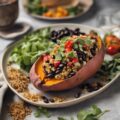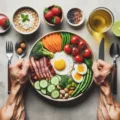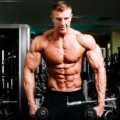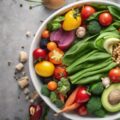Building muscle isn’t just about spending hours in the gym lifting weights; it’s also about what you put on your plate. Protein is the building block of muscle, and a high-protein diet is essential for anyone looking to enhance muscle mass and strength. In this article, we’ll walk you through the steps to create a muscle-building diet plan that is rich in high-quality proteins and supports your fitness goals.
Understanding Protein and Muscle Growth
Protein is composed of amino acids, which are the essential components your body needs to repair and build muscle tissue. When you engage in strength training, you create tiny tears in your muscle fibers. Protein helps repair these tears, leading to muscle growth. However, not all proteins are created equal. Complete proteins, which contain all nine essential amino acids, are the most beneficial for muscle growth.
Calculating Your Protein Needs
To optimize muscle growth, you need to consume the right amount of protein. A general guideline is to consume between 1.6 and 2.2 grams of protein per kilogram of body weight per day. For a 75 kg individual, this means aiming for 120 to 165 grams of protein daily. This amount can vary based on factors such as age, sex, and the intensity of your workouts.
Top Protein Sources for Muscle Gain
Choosing high-quality protein sources is crucial for muscle building. Here are some top choices:
- Lean meats like chicken, turkey, and lean cuts of beef
- Fish such as salmon, tuna, and cod
- Dairy products like Greek yogurt, cottage cheese, and milk
- Plant-based options such as tofu, tempeh, and legumes
- Protein supplements like whey or plant-based protein powders
Incorporating Protein into Your Meals and Snacks
It’s important to spread your protein intake throughout the day. Aim to include a protein source in every meal and snack to support continuous muscle repair and growth. For example, you could have eggs for breakfast, a chicken salad for lunch, Greek yogurt for a snack, and grilled fish for dinner.
Hydration and Micronutrients
While protein is essential, don’t neglect hydration and micronutrients. Water is crucial for overall health and helps transport nutrients to your muscles. Vitamins and minerals also play a key role in muscle function and recovery, so include a variety of fruits, vegetables, nuts, and seeds in your diet to ensure you’re getting all the necessary nutrients.
FAQ
How much protein do I really need to build muscle?
Most people should aim for 1.6 to 2.2 grams of protein per kilogram of body weight per day for muscle growth.
Can I build muscle with plant-based proteins?
Absolutely. Plant-based proteins like tofu, tempeh, and legumes can be part of an effective muscle-building diet. Ensure you’re getting a variety of sources to consume all essential amino acids.
Is it possible to consume too much protein?
Yes, consuming more protein than your body needs can lead to unnecessary calorie intake and potential kidney strain. Stick to the recommended amount for your body weight and activity level.
Should I use protein supplements?
Protein supplements can be useful if you struggle to meet your protein needs through food alone, but they should not replace whole food sources of protein in your diet.
How important is hydration in a muscle-building diet?
Hydration is extremely important. Water helps transport nutrients to your muscles, aids in digestion, and ensures optimal performance during workouts.








